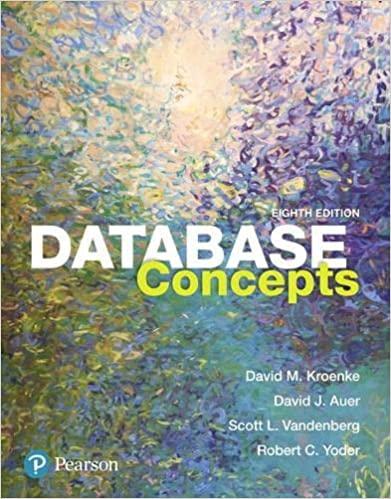Question
Consider MSTs on complete, undirected graphs. A graph with n vertices is complete if all possible n edges are present in the graph. Consider the
Consider MSTs on complete, undirected graphs. A graph with n vertices is complete if all possible n edges are present in the graph. Consider the following two 2 types of graphs:
Complete graphs on n vertices, where the weight of each edge is a real number chosen uniformly at random from [0, 1].
Complete graphs on n vertices, where the vertices are points chosen uniformly at random inside the unit square. (That is, the points are (x, y), with x and y each a real number chosen uniformly at random from [0, 1].) The weight of an edge is the Euclidean distance between its endpoints.
Your goal is to determine how the average weight of the minimum spanning tree grows as a function of n for each of these families of graphs. You will need to implement an MST algorithm and procedures that generate the appropriate random graphs. Run your program on at least five random graph instances for
n = 16, 32, 64, 128, 256, 512, 1024, 2048, 4096, 8192
and report the average for each value of n. For each family of graphs, generate an appropriate figure that depicts your results. Clearly label the axes and think carefully about the most effective representation (should it be a bar chart, line chart, scatterplot, etc.). Also, interpret your results by giving (and plotting) two sample functions that characterize each of your depicted results. For example, your answer might be f (n) = 2 log n, f (n) = 1.5 n, etc. Also, provide a few sentences of intuition for why the growth rate of your functions f (n) are reasonable. Do this for both types of graphs separately.
Step by Step Solution
There are 3 Steps involved in it
Step: 1

Get Instant Access to Expert-Tailored Solutions
See step-by-step solutions with expert insights and AI powered tools for academic success
Step: 2

Step: 3

Ace Your Homework with AI
Get the answers you need in no time with our AI-driven, step-by-step assistance
Get Started


